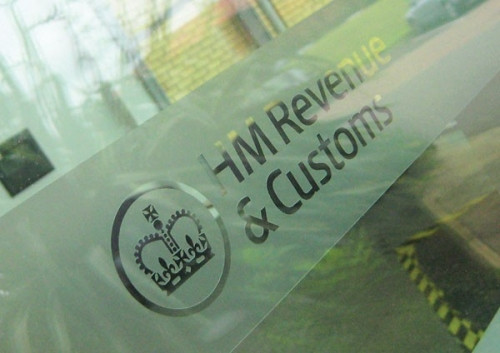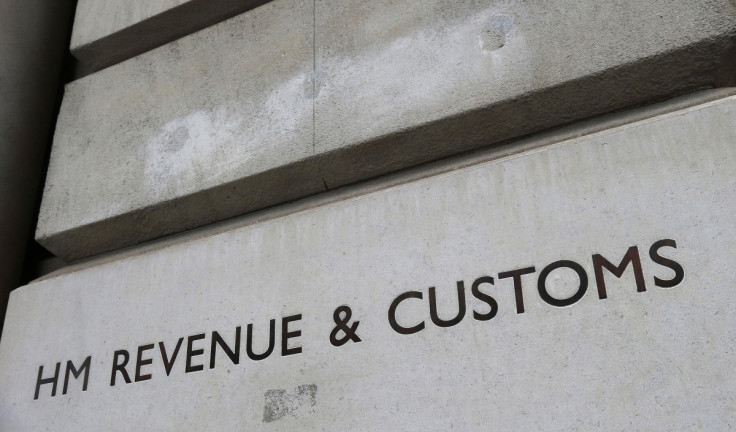The Government's 'Secret' Tax Offensive: All Talk and No Trousers

The US justice machine has demolished bit by bit the once-sacred architecture of Swiss banking secrecy.
It began in 2008 by breaking Swiss banking giant UBS, and most recently Credit Suisse was slammed into submission. A systematic and far-reaching investigation by US authorities has interrogated every Swiss wealth management operation in between.
The UK government, by contrast, has shown itself to be all talk and no trousers, especially in the Swiss tax treaty department.
It is deeply embarrassing to the government that HMRC's attempts to claw back unpaid tax from wealthy UK residents with Swiss bank accounts has turned out to be lame. Especially since George Osborne had already factored billions in recovered tax revenue into his spending plans.
The government promised its Swiss-UK tax treaty would return £3bn (€3.6bn, $4.8bn), but when Margaret Hodge MP, the chair of the Public Accounts Committee, grilled some stooges from the Revenue late last year, it turned out only a paltry £440m had been recouped.
In situations like this Osborne typically tries to shift blame, citing the previous government's failure to put rigorous rules in place: "It has been a problem in the British crown dependencies, which have not done enough in the past to be transparent. But we have been tough and as a result they have fallen into line," he said.
The Public Domain
A further irony is the government's high profile poster campaign pledging to get tough with tax evaders. HMRC said in a statement: "The campaign is a part of the Government's £917m spending review investment to tackle tax evasion, avoidance and fraud from 2011/12, which aims to raise an additional £7bn each year by 2014/15."
The UK-Swiss tax treaty can levy a one-off withholding tax of as much as 34% of the value of all the assets in a given account before its beneficial owners are allowed off the hook.
The UK government, by contrast, has shown itself to be all talk and no trousers, especially in the Swiss tax treaty department
The fact that there has been a mere fraction of the anticipated revenue collected, suggests many simply closed their Swiss accounts and moved their funds to murkier jurisdictions, where the heat is less intense.
Built into the fabric of the treaty is a provision that Switzerland must disclose to the UK how much money is moving and to where.
Article 18, of the UK-Swiss tax agreement states:
"Switzerland will provide the UK with a list of the ten states and territories that turn out to be the greatest recipients of assets between 6 October 2011 and 31 December 2012, as well as the corresponding number of persons involved in such transfers.
"This statistical data will provide a good foundation for the UK tax authorities to continue their efforts to combat tax evasion with the jurisdictions to which alleged tax evaders have shifted their assets. UK will receive this information at the latest until 30 April 2014."
Don't Ask
IBTimes UK has called on HMRC via Freedom of Information requests to share some or any facts and figures about absconded Swiss accounts.
Unsurprisingly, the answer was no.
To be fair, the second time around HMRC did provide an explanation as to why treaty data would not be shared with anyone outside the government.
Invoking section 27 of FOI Act, information is exempt if its disclosure would be likely to, prejudice—
(a) relations between the United Kingdom and any other State,
(b) relations between the United Kingdom and any international organisation or international court,
(c) the interests of the United Kingdom abroad, and so on ...
Size Matters

Returning to the comparison made at the start with the US, it was precisely because Swiss secrecy and recalcitrance was affecting relations between America and Switzerland that the latter's government was forced to step in and hurriedly change its own constitution to allow banks to make disclosures.
It should also be pointed out that the US Foreign Account Tax Compliance Act (FATCA) is a more extensive and robust piece of legislation than UK's inter-government tax agreements, and the sort of OECD-style bluster it favours.
From the outset FATCA enforces an arraignment of foreign institutions (FIs) that might be sheltering US account holders from the IRS.
By contrast, the UK tax agreement discourse carries on about retaining individuals' anonymity provided they are good enough to co-operate.
This fundamental difference of approach extends beyond the toothless efforts of HMRC, and runs deeper even than the contradictions and hypocrisy of our Coalition government.
America's ultimate sanction is to exclude a bank or institution from doing business on US soil – this was where the UBS debacle was heading. But London could never do that: its power and dominance is utterly dependent on having everyone at the party.
Grease is the Word
Like its ridiculous property prices, London is not representative of the rest of the UK, but rather houses a transient super-class of tax avoiding scum.
The City has always been a laissez-faire honey pot where speculators and casual investors are carefully divested of a proportion of their assets – this is the grease that oils the capital's financial wheels.
Like its ridiculous property prices, London is not representative of the rest of the UK, but rather houses a transient super-class of tax avoiding scum.
The City has its own mystical GDP: nothing is produced or created that is of any use to anyone, only commissions and fees for professional services of one sort or another.
Much of this leviathan-like store of treasure, skimmed from trillions of transactions is reliant on the capital's dealings with crown dependencies, off shore Caribbean jurisdictions or Alpine wealth managers – along with the rest of the world's private wealth and undeclared assets.
© Copyright IBTimes 2025. All rights reserved.






















